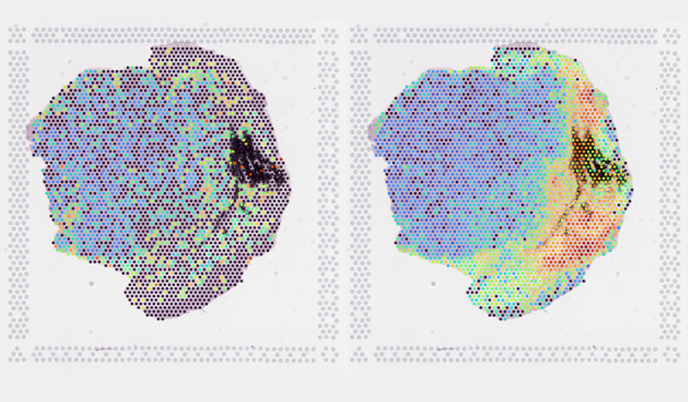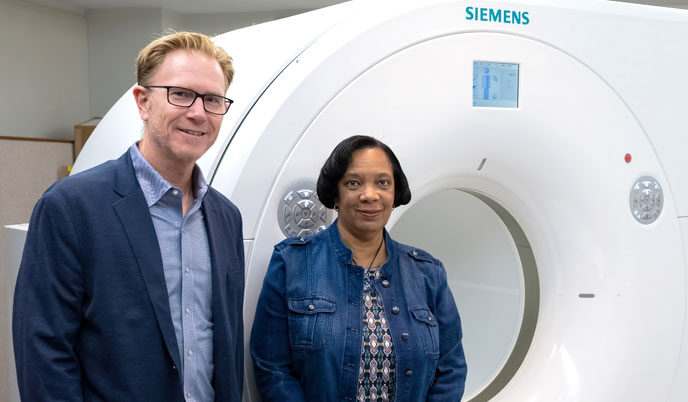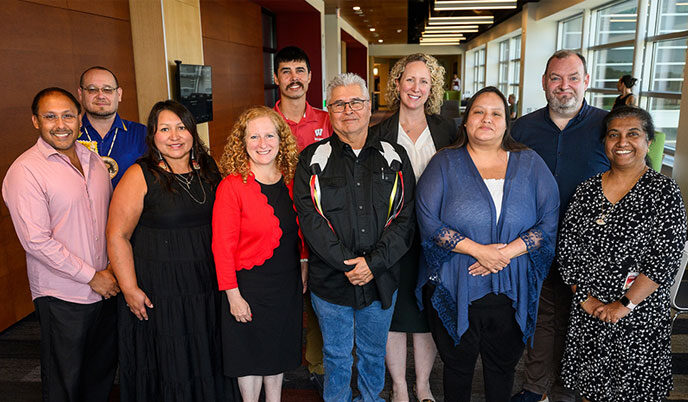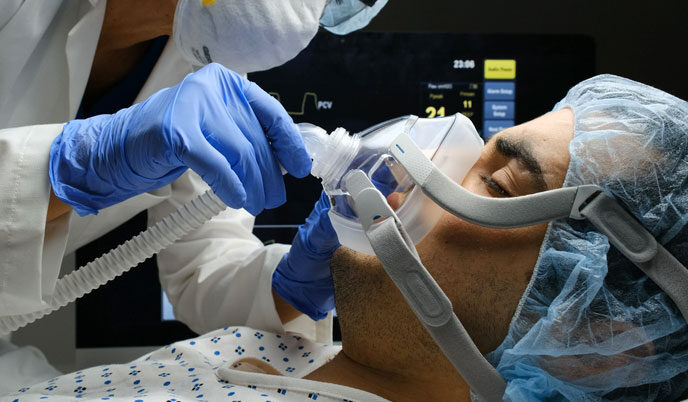
Mixed dose radiation enhances immune response to cancer
A new study in mice shows that delivering different doses of radiation to a tumor revs up the immune system and allows it to detect not only the treated tumor but distant tumors that were not irradiated. When mixed dose radiation is followed with immunotherapy drugs called immune checkpoint inhibitors, it makes the drugs more effective at killing cancer cells throughout the body than when radiation was delivered at a single dose level.

Radiology set to recruit and support top talent
Dr. Thomas (“Tom”) Grist comes from a family of engineers and inventors. His great-grandfather was a co-inventor of the pop-up toaster, patented in 1927 — which may help explain how this native of Appleton, Wisconsin ended up pushing the boundaries of knowledge in the fields of magnetic resonance imaging (MRI) and computed tomography (CT).

Brain scans begin for nationwide Alzheimer’s disease study
Research participants have begun volunteering for brain scans at the University of Wisconsin School of Medicine and Public Health in Madison for a national study on Alzheimer’s disease and related dementias.

Bret Benally Thompson named Physician of the Year
Dr. Bret Benally Thompson was working as a police officer in Texas when he had a “waking vision,” as he describes it, that directed him to pursue his dream of becoming a doctor.

Microbiology alum wins prestigious award
Ruth Isenberg, a first-generation college student who earned her PhD in microbiology from the UW–Madison Microbiology Doctoral Training Program in 2023, was awarded the 2024 Nat L. Sternberg Thesis Prize for outstanding doctoral research in the field of bacterial molecular biology.

Maternal blood pressure program expands to help women facing health risks
A UW Health and UnityPoint Health – Meriter program designed to monitor blood pressure during pregnancy and after birth to decrease health complications and hospital readmissions is expanding outside the hospital walls.

Art Walaszek named associate dean for faculty affairs and development
Dr. Art Walaszek has been named the next associate dean for faculty affairs and development at the University of Wisconsin School of Medicine and Public Health.

Trust is key to collaborating with Native community
From their home near the forested lakes of Mole Lake, Wisconsin, the Tribal Council of the Sokaogon Chippewa Community (SCC) traveled to the University of Wisconsin–Madison, where they were welcomed by health sciences and biomedical researchers and staff.

Grants power two decades of statewide impact
The university’s medical school would not be the UW School of Medicine and Public Health without the Wisconsin Partnership Program (WPP), celebrating its 20th anniversary this year.

RISE-THRIVE initiative focuses on immunology and healthspan
The UW School of Medicine and Public Health will play a significant role in the newest area of focus for the Wisconsin Research, Innovation and Scholarly Excellence (RISE) initiative: RISE-THRIVE, aimed at advancing health and improving lives.

‘Forever chemicals’ show up in Wisconsin residents
A large, population-based study shows that while most Wisconsin residents have some “forever chemicals” known as PFAS in their blood, those who have the highest levels are higher income, older white men who have eaten locally-caught fish.

Noninvasive ventilation better for patients
Recently published results from a clinical trial showed that for critically ill adults needing tracheal intubation for emergency airway support, the method health care providers choose to use for providing supplemental oxygen before the intubation procedure affects the patient’s risk of hypoxemia, or potentially life-threatening low levels of blood oxygen.